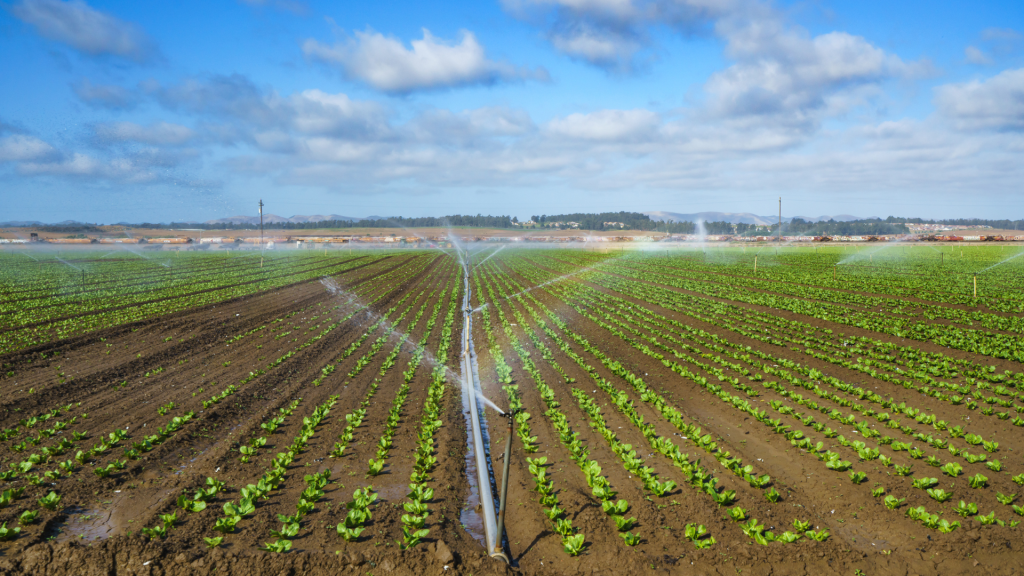Water treatment for the Agricultural sector
Overview
Water treatment is essential for ensuring the efficient use of resources in farming for the agriculture sector. With increasing water scarcity and the growing demand for sustainable agriculture, water treatment systems are pivotal in improving irrigation efficiency, maintaining soil health, and reducing the environmental impact of agricultural activities. By providing clean and safe water, these systems help enhance crop yield, livestock health, and overall farm productivity, all while conserving natural resources and meeting environmental regulations.

Application
Water treatment systems serve multiple purposes in the agricultural sector, including:
- Irrigation: Treated water is essential for drip, sprinkler, and surface irrigation systems to prevent clogging of equipment and deliver nutrient-rich water to crops.
- Greenhouse Operations: High-quality water is used in controlled environments like greenhouses to support the growth of sensitive plants.
- Livestock Watering: Clean water is vital for livestock health and productivity, reducing the risk of waterborne diseases.
- Aquaculture: Treated water ensures optimal conditions for fish and other aquatic species, maintaining water quality parameters such as pH, oxygen levels, and cleanliness.
- Drainage Water Reuse: Wastewater or runoff is treated for reuse in irrigation or other agricultural activities, minimising water wastage.
- Pesticide and Fertiliser Dilution: High-purity water is used to prepare solutions for applying pesticides and fertilisers, ensuring effectiveness and safety.
Technologies
Various advanced technologies are employed to meet the water treatment needs of the agriculture sector:
- Filtration Systems: Sand, carbon, and membrane filters are used to remove debris, sediments, and impurities from irrigation water.
- Reverse Osmosis (RO): Ensures desalination and removal of harmful salts, protecting crops from salinity stress.
- Ultraviolet (UV) Sterilization: Used to disinfect water by eliminating pathogens, bacteria, and algae.
- Chemical Dosing: Introduces nutrients, pH adjusters, or disinfectants into water to optimize its quality for specific agricultural uses.
- Biological Treatment: Treats agricultural runoff or wastewater by breaking down organic materials and nutrients through natural or engineered biological processes.
- Dripline Flushing Systems: Prevents clogging in drip irrigation systems by removing biofilm, scale, and other blockages.
- Constructed Wetlands: Natural systems designed to treat agricultural runoff by filtering water through vegetation and soil.
In need of expert advise?
Don't hesitate to ask a question

- Derwent House, 42-46 Waterloo Road, Wolverhampton, WV1 4XB
- Tel: 01902-458-501
- Email: info@membracon.co.uk
Follow Us
Join our online community to see the latest news around Membracon and our sustainable solutions .
Our Products
- Anode Cells for Electrocoating
- Ultrafiltration Membrane System
- RO Membranes and Systems
- UV Bacterial Control
- Effluent Treatment
- Liquid Filtration Solutions
- Process Tank Integrity Check
- Rectifier
